Film Review: "Testament," by Denys Arcand
The funniest and most profound satire of woke politics
French-Canadian director Denys Arcand is not very famous, even in the Francophone world. But his unique, outstanding, films have earned him a dedicated cult following, starting with your writer (and a shelf-full of awards, including one Oscar). And his films tend to have a subtly reactionary edge.
His latest film, Testament, is both hilarious—sometimes side-splittingly so—and profound. It is also the best satire I have seen of wokery and woke politics I have seen, in any medium, thus far. It is also a powerful meditation on love, death, and the meaning of life. In short, I cannot recommend highly enough that you watch it and that you get other people around you to watch it.
Maybe the idea of watching a French movie which almost entirely consists of people talking and pondering the meaning of existence scares you, or doesn’t appeal. If so, then this is the French-movie-which-almost-entirely-consists-of-people-talking-and-pondering-the-meaning-of-existence you should watch, because it is that, but it is also highly funny and entertaining.
Previously a documentary filmmaker, Arcand won international acclaim with The Decline of the American Empire (1986), a cult classic—it is required viewing every year in my family—which defies easy description.
The synopsis, as written on the page, cannot possibly do it justice: a group of academics sit around and have frank discussions about sex, interspersed with discussions about history, literature, and philosophy. Yes, it is impossibly French, and thus, wonderful. It is a movie at turns hilarious and profound—a phrase that could apply to all of Arcand’s works.
Decline portrays exactly what it says on the tin: the decline of a great empire which has succumbed to hedonism. The hilarity of its treatment of the characters’ disordered sexual relationships—the protagonist, Rémy, a professor of history, is a compulsive womanizer who hides his conquests from his dutiful and dull wife; his colleague Pierre has given up on love and finds release with prostitutes; Claude, a gay art historian, has a health scare after too many sexual encounters with strangers in public parks; their female colleagues find escape from the loneliness of post-commitment dating life with increasingly extreme sexual escapades—hides the profundity of its “Houellebecquian” critique of the disorder and deep misery of the post-60s sexual landscape.
Arcand waited almost 20 years to do the sequel. The Barbarian Invasions, which won the Academy Award for Best Foreign Film, released in 2003, takes place on a post-9/11 backdrop. Rémy, the protagonist of the first film, now has terminal cancer. While Decline was 80% comedy and 20% drama, The Barbarian Invasions is closer to 30% comedy and 70% drama, though it includes sardonically comedic subplots, such as its satire of “Kill yourself” communist Canadian healthcare, which Rémy escapes when his rich stock-broker son bribes a hospital director and thuggish union bosses to get his father his own private wing in the cancer ward; and a darkly hilarious sequence flashing back to the 1970s when Rémy, then fahsionably Maoist, tries to seduce a Chinese exchange student by praising the Cultural Revolution, unaware that his would-be paramour had watched her parents executed during those events.
While Decline is a wickedly smart and funny comedy, The Barbarian Invasions is a true drama about the disappointments of life, and the end of life. As Rémy faces terminal illness, his estranged friends, ex-wife and children reunite for a last stay in the country house that was the setting of the first film. The clichéd phrase “I laughed, I cried” was perhaps never more appropriate to describe a truly profound and moving film.
It’s not all about the writing, though. Arcand is a talented director of actors, who brings out stellar performances out of his hires (and the fact that the same set of actors have been with him across decades speaks highly of his talent). He is also subtly imaginative with his mise-en-scène and his shot setups, which helps keep the viewer’s eyes moving even through dialogue scenes. His music selections are always excellent, as is his photography.
Anyway—I just wanted to flesh out that Arcand is truly one of the great and most underrated directors of his generation. This explains that when I saw the film’s poster on the back of a bus, I knew I had to run to see it. (One of the good things about France is that there are posters for art-house films on the backs of busses.)
And I was even more enthusiastic when I found out that the film had been positively demolished by French film critics—Le Monde gave it only one star! Then I knew I really had to see it.
Were our ancestors happier? Or perhaps they were just better at dealing with their unhappiness. “This world is a Vale of Tears, and we were not put here to be happy, but to merit our place in Heaven,” my mother used to say. But she smiled a lot, and she played the piano marvellously. - Jean-Michel, Testament
One might describe Testament as a film where nothing happens: Jean-Michel Bouchard (played masterfully by Rémy Girard, the lead actor of Decline and The Barbarian Invasions) is retired and lives in an old people’s home run by the Québec government. Jean-Michel was once an intellectual (“I have written a few books in the past, which are now completely forgotten”), earning a living as an archivist in the Québec civil service, where he still works two days a week (“a privilege granted to me”) while collecting his pension. Unmarried, with no children, his parents and siblings dead, Jean-Michel simply awaits his turn to die. He goes on daily walks, chats with his fellow pensioners, digs through the archives of obscure dead Québec politicians, has an occasional beer with his last remaining friend, a retired academic, plays on the pension home’s grand piano, and witnesses vignettes, some sad and some hilarious, which are an occasion for his sardonic voice-over commentary.
For example, a directive from the Québec Ministry of Health mandates that the home’s library be replaced by a video game room, per a study suggesting that video games help seniors’ neural development, with predictably hilarious results.
“What will happen to the books?,” Jean-Michel asks the director of the home.
“We are throwing them away.”
“Couldn’t you at least donate them?”
“We tried. Nobody wants them. At least they will be recycled. Into wrapping paper.”
There is, however, a plot. The home where Jean-Michel lives happens to have a 19th century mural (of quite mediocre artistic merit), which happens to display Jacques Cartier, the French discoverer of Canada, meeting the natives. This “racist” mural draws the ire of a dozen student protesters who soon get the media and politicians involved. The tragicomedic story of the mural provides the impetus for the plot.
Arcand—to Le Monde’s outrage—dares to Notice, for example that woke activists seem to be disproportionately white (an activist, who claims to be indigenous, is exposed as not indigenous at all), middle- or upper-class, female, and obese. The activists, who are disproportionately blonde, hold drum circles outside the pension home while wearing Indian headdress, behavior which they would certainly denounce as racist cultural appropriation if they saw others doing it. Most tellingly, in bilingual Québec, the activists uniformly refuse to speak French, speaking instead in American-accented English, perhaps the best commentary on the truly colonial nature of woke ideology.
Most of the humor comes from the satire of woke politics, as when Jean-Michel is nominated (by mistake, it turns out) for a literary award, and attends the ceremony, only to be stepped over (literally) by all the other winners, who all happen to have many more Diversity Points than him, such as an obese poetess who wins an award for a collection of poems about her vagina.
And there is even more plot! The tragicomic story of the mural brings together Jean-Michel and Suzanne, the put-upon director of the seniors’ home, a hum-drum civil servant who is out of her depth in the political maelstrom she finds herself in.
Jean-Michel receives weekly visits from an attractive young woman, who stays in his room for one hour exactly each time. Suspecting something untoward, Suzanne tries to catch them in the act, and finds out what Jean-Michel pays the pretty lady for: to sit on his couch and stroke his hair as he lies with his head on her lap and tells her about his week. Truly, men literally only want one thing…
Suzanne’s jealous anger at Jean-Michel’s extracurricular activities makes them realize that there may be more to their relationship than friendship… And Jean-Michel, who was simply waiting to die, might suddenly find himself with a reason to live…
And the ultimate fate of the mural is revealed in an end-credits sequence set in the 2040s—at a time when, it is strongly implied, North America has been colonized by China.
That’s what I can tell you about the plot without spoiling it too much.
The bottomline is that Testament is a moving story about an old man’s search for meaning, interspersed with side-spittingly funny vignettes mocking contemporary pieties (indeed, not just woke politics, but also health fads and Covid craziness).
Arcand shoots everything that moves, and he never misses—even boomer conservative politics, as the mural affair generates a brief right-wing counter-protest. Arcand’s hilarious silent commentary on the prospects of such politics is shown as a protester is interviewed on a TV news channel as, behind him, ever-more geriatric and impotent old boomers painfully trundle by on electric wheelchairs, in comic counterpoint to the protester’s protestations about the vitality of his movement. Indeed, Arcand even mocks himself, as he puts an anti-woke rant which he must certainly agree with in the mouth of an effete and unbearable Ministry of Culture official.
The Health Minister of Québec, who tries to get the mural affair to go away by any means necessary, avers that it doesn’t matter whether the protesters are only pretending to be indigenous, as in politics only appearances matter—after all, she comments privately to an aide, during the Covid pandemic, all she did was pretend to have any idea what was going on, and the more she lied the more popular she became.
As Arcand has grown older, his movies have become more God-haunted. At one point, Jean-Michel and Suzanne are commenting on how everyone seems to be unhappy— “Except for those who believe Jesus loves them,” Jean-Michel interjects; “Yes, except for those people,” Suzanne replies, smiling.
“Every once in a while, one must accomplish a gratuitous gesture of goodness. It is what makes life bearable.” Jean-Michel
The good and bad thing about Substack is that I don’t have an editor, so I don’t need to find a conclusion to this review, other than to summarize the main points: Denys Arcand is a great director and you should watch his movies if you haven’t already. You should watch Testament and get your friends to watch it, because it is very funny, occasionally profound, and it is the best satire of woke politics to have come out in the entire Current Era. Wikipedia informs me that Arcand is now 82 years old. If this movie is indeed the testament of a great director, he could do a lot worse. Run, don’t walk.




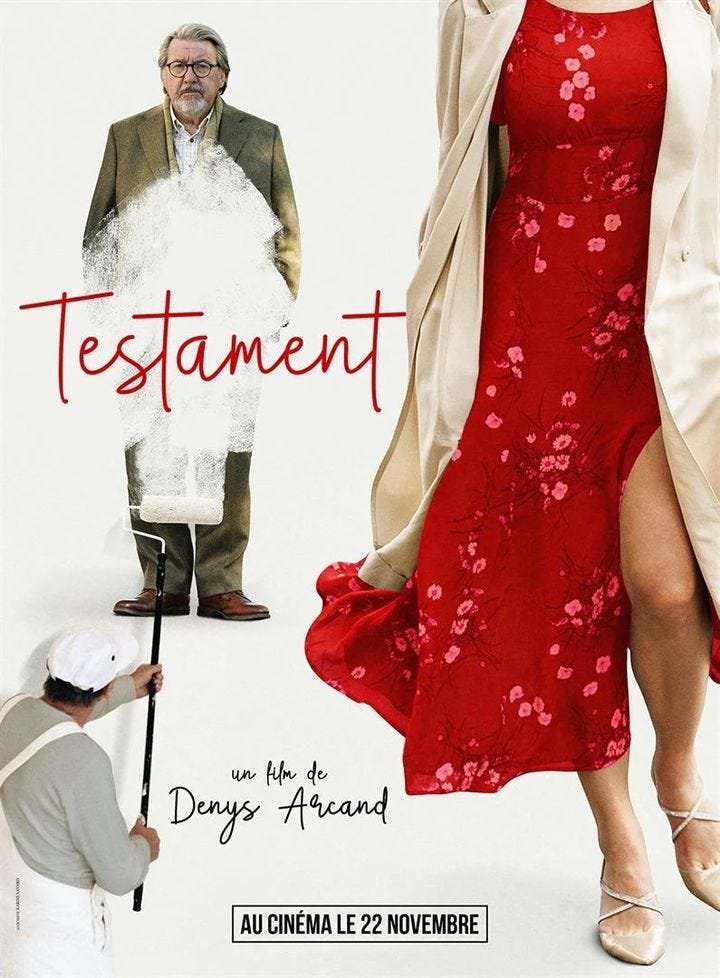
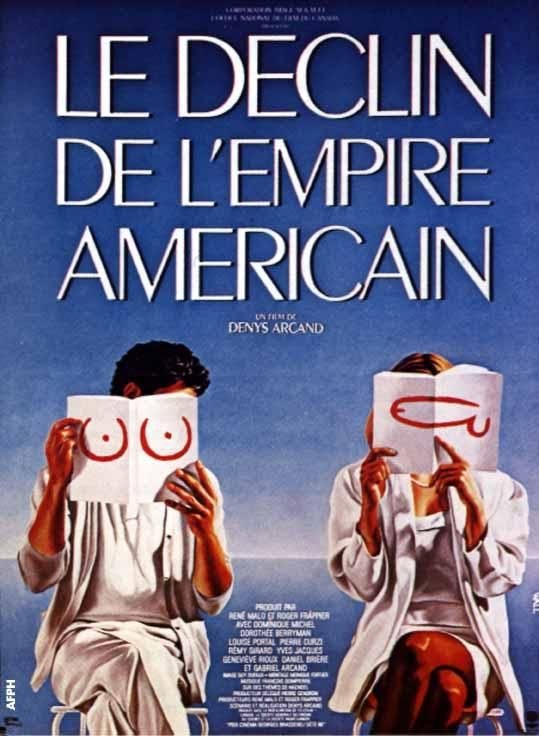
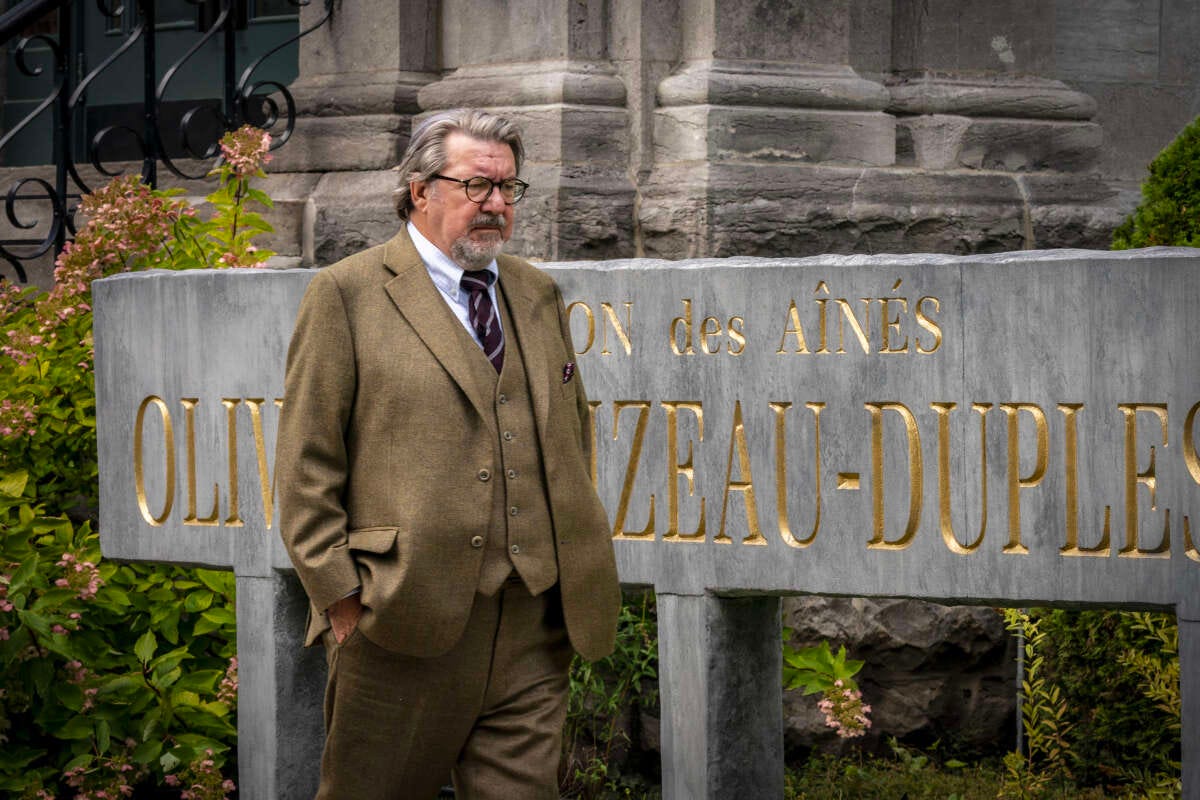
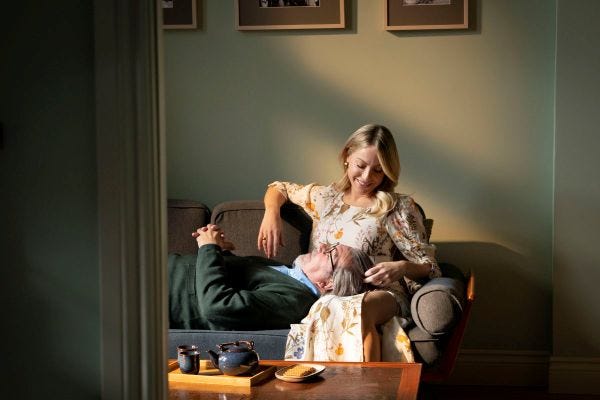
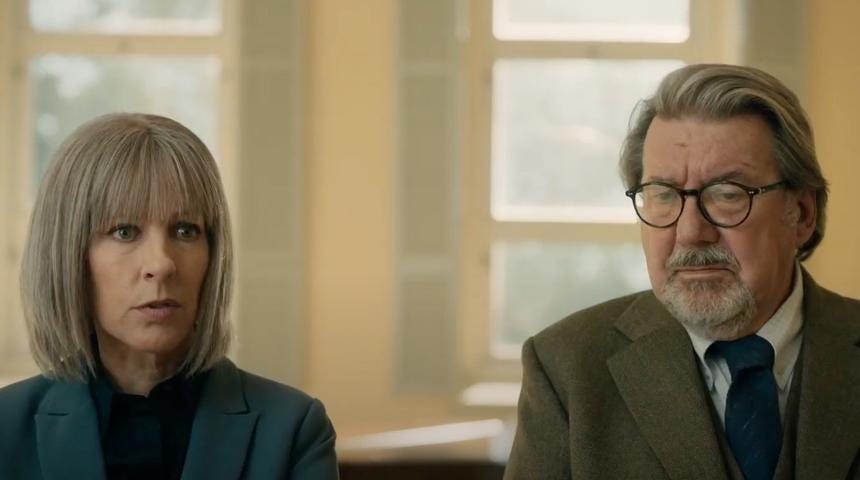
Sounds like a great movie. Where did you watch it? I don’t see it in theaters or streaming but maybe I missed it somewhere.
Here in Québec Denys Arcand is well known and well loved by the older generation, I'm an X generation myself. He doesn't make a lot of movies but they are always cultural event. Thanks for the review, haven't seen it yet myself.